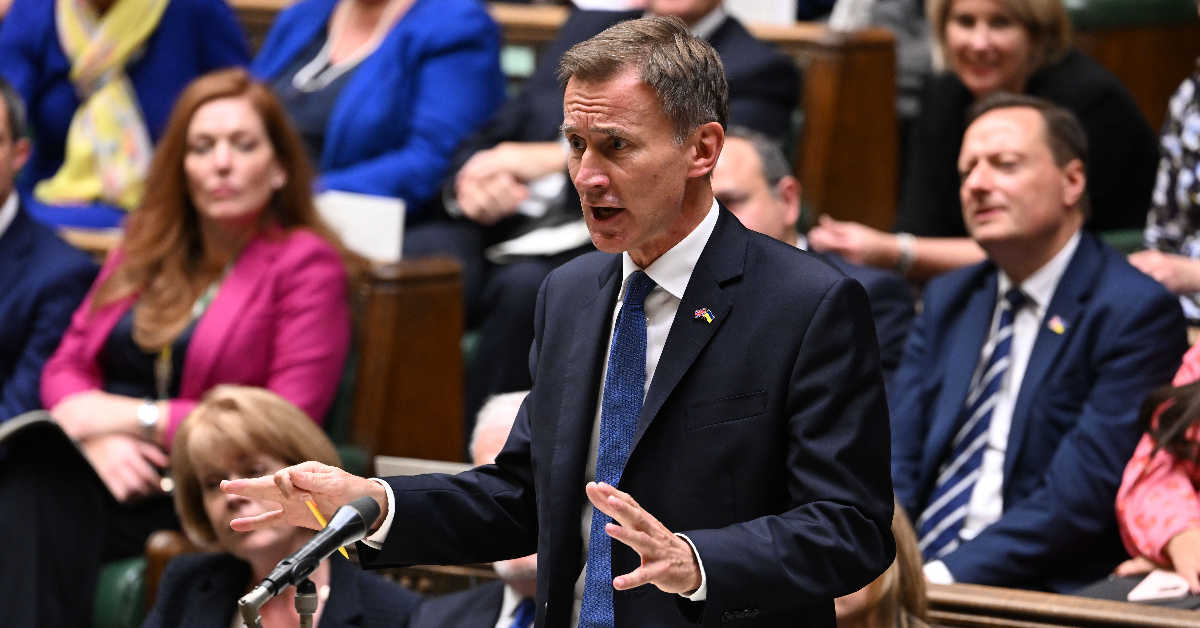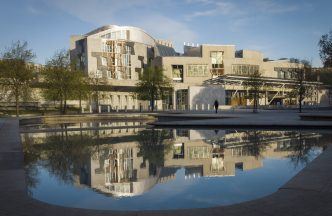Rarely did an Autumn Statement look more like a full-blown budget than the one delivered just before lunchtime today by the chancellor Jeremy Hunt.
And rarely could the contents have been so widely trailed, briefed and leaked in advance. Nevertheless, it was an army of nervous Tory MPs who sat behind Hunt and the now bespectacled Prime Minster Rishi Sunak.
There were some new announcements in the finer details, but all the bigger picture announcements were known before he rose to speak.
There was an intriguing aspect of this budget from a traditional Conservative point of view. Higher earners were targeted. So too was big business with a triple whammy of higher corporation tax, higher windfall taxes and a new levy on electricity generators.
Those who deal in property will be hit with cuts in the allowance for capital gains tax and the threshold for inheritance tax has been frozen further to snare more estates swollen by higher property prices.
Those thought of as outwith the Conservative coalition, like those on benefits and people earning the national living wage, will see inflation or near-inflation increases to their benefits and pay.
And the pensions ‘triple lock’ will apply, increasing the state pension by 10.1% next April.
Hunt also signalled he will intervene to cap rents in the private sector, normally a move favoured by the left.
‘Slaves to higher taxes’
On the face of it, many of these measures could have been delivered by a Labour chancellor, which is why many on the political right believe the Tories are now slaves to higher taxes and a bigger state.
And despite focusing on cuts to spending, the health and education budgets have been spared in a move that signals they are, for political, nay electoral, reasons, untouchable.
This budget may have seen the pragmatic trump the ideological, but the key question is whether it digs the Tories out of the political hole they are in.
The problem for the inhabitants of Numbers 10 and 11 is that they are only where they are because of the economic mismanagement of their predecessors.
This was a budget that officially gave the last rites to a Tory mini-budget which spooked the markets, led to a run on pension funds and has led to mortgage misery for millions.
Hunt is a Tory chancellor attempting to rescue a party from the folly of its own decisions.
The chancellor’s pitch to voters is simple: I will be straight with you. I will take tough decisions and I will front up about taking more in tax, but I will do it in a way that protects the vulnerable and will squeeze inflation out of the system and lead to longer-term growth.
The opposition charge sheet is equally simple. The government’s mismanagement of the economy has led us to this position, and they cannot hide behind the ‘made in Russia’ mantra as a defence to their own incompetence.
Indeed, the shadow chancellor Rachel Reeves said that the cuts to spending announced today were not on the horizon a couple of months ago.
The electoral consequences will in part be down to how those in work who are not wealthy (the electoral mainstream) react to this.
I would flag up two points.
First, despite Hunt’s claim in his statement that he will deliver “lower inflation and lower mortgages”, it is a hollow point.
Lower inflation next year will merely put a brake on the need for further rises in interest rates, it will not have the effect of lowering them.
It will not reverse the mortgage misery, it will merely limit even further increases. Substantially higher mortgage payments will be a fact of life by the time of the next election.
The second point is that he is scaling back the help for most households suffering from higher energy bills. Targeted support is aimed at those on benefits and pensioners, and although some help will be extended beyond next April, it is less generous.
Put simply, the current higher energy bills will get higher still and the mitigations from government will still leave most households out of pocket by many hundreds of pounds, if not thousands, depending on their energy consumption.
A double whammy of higher energy bills and increased mortgage costs, not fully felt until 2023, is going to lead to an angry electorate. Hunt is gambling that his honest approach will cut through the anger.
In some ways, the Prime Minister and chancellor are at the mercy of external factors. International commodity prices are beyond their control, so to the geo-economic consequences of war in Ukraine. They have no direct control over interest rates.
On top of that, they are being criticised by many on the right and they are not making a persuasive job of throwing off the ‘made in Downing Street’ tag bestowed by the opposition.
There is also a sense that the polls suggest people have stopped listening to the government, that they have had enough of them.
Today, the terrain on which the next election will be fought became clear. Navigating that terrain will require consummate skill and a supreme political antennae.
As I have written before, I doubt that Sunak has what it takes.
The palpable anger felt by many in Britain who are voting to strike with every passing ballot will be another test for the government.
If the task of winning an election from circumstances that look beyond dire was a straitjacket from which to escape, it would confound Houdini himself.
From that mini-budget, everything changed, but in a funny way, nothing has changed at all. The Tories still tip-toe on the precipice of electoral oblivion.
Follow STV News on WhatsApp
Scan the QR code on your mobile device for all the latest news from around the country


 UK Parliament
UK Parliament


























